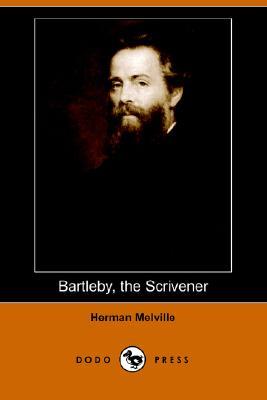

Individuality certainly plays a big part in this – after all, part of what makes us different from apes is the simple, undeniable fact that they don't go around inventing wacky new hairstyles to stand out from the crowd. In "Bartleby the Scrivener," Herman Melville asks his readers to consider this very same question of what makes us human. After all, what is literature but the study of human nature? What is writing but a means for expressing the ideas of a unique, individual mind? But don't blame us if it distracts you from your studies for too long this is one of the most valuable things you can do as a student of literature. Observe what makes each of us different – what makes each of us individually articulated, completely unique human beings. Take a minute to stop and look around at the people you interact with every day…sit back and people watch for a while. What is Bartleby the Scrivener About and Why Should I Care?

Is it simply a comment on the oddities of human nature? Is it sufficient to look at the story as a scathing mockery of the writings of Melville's contemporaries, Henry David Thoreau and Ralph Waldo Emerson, whose specific brand of self-reliance and independence might be seen in Bartleby's stubbornness? Or can we perhaps even see Melville himself in the infuriatingly fascinating character of Bartleby? The critics all seem to have different opinions on this question – how about you? The true meaning of "Bartleby" has been discussed and dissected by critics everywhere, ever since its first publication. "Bartleby" is a departure from the sea-faring adventures that Melville often presented to readers in fact, this is a story in which the most exciting thing that happens is actually the fact that nothing really happens. Published in 1853, " Bartleby the Scrivener" is one of American writer Herman Melville's most often-read and studied works (which is really saying a lot, considering that the guy also penned numerous classics, including Moby-Dick and Billy Budd).


 0 kommentar(er)
0 kommentar(er)
